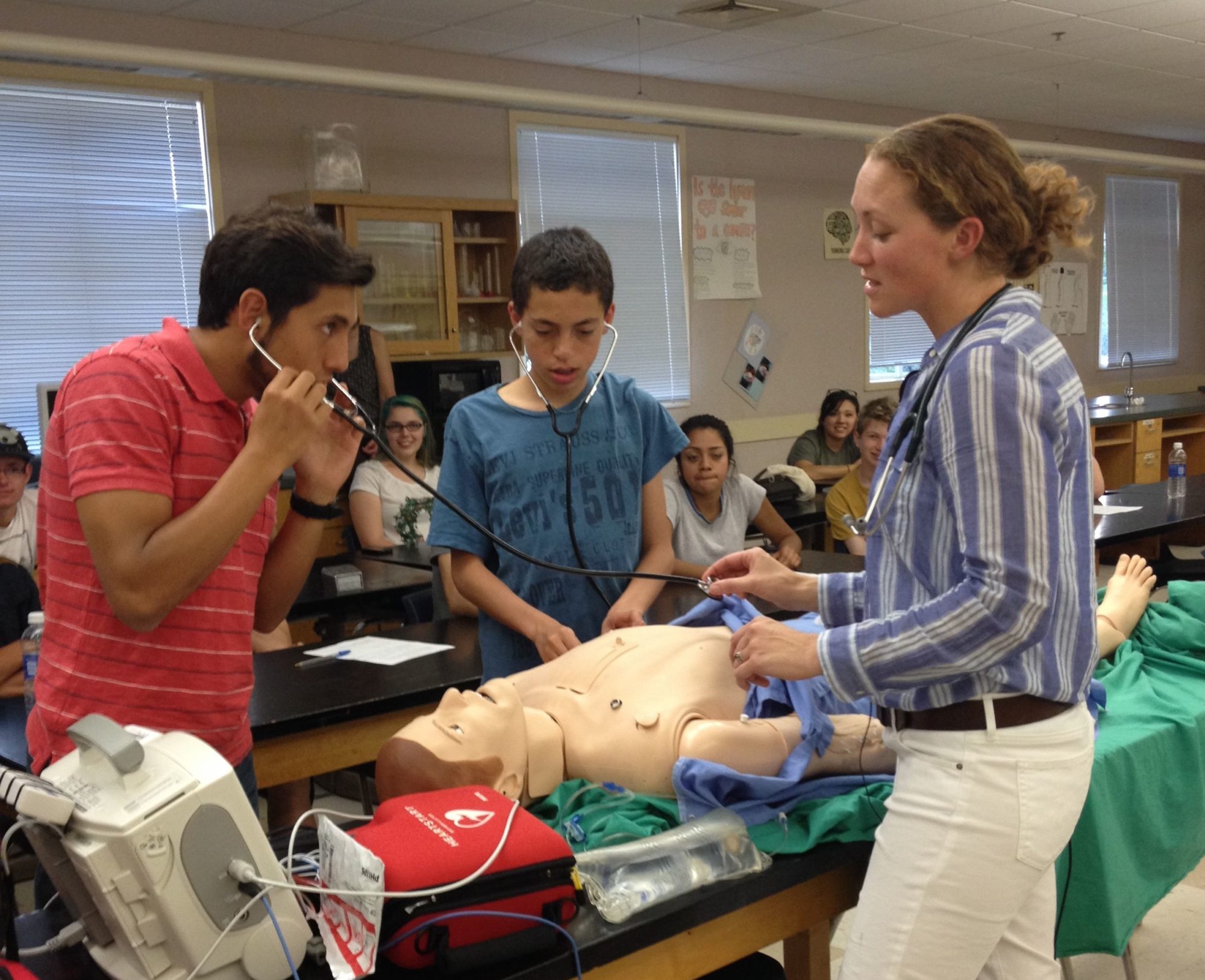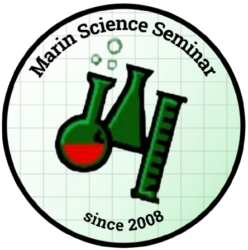by Jessica Gerwin, Drake HS
When you hear the term public health, ideas that may come to mind might be about immunizations or food recalls. However, many of us don’t realize how big of a role public health plays in our everyday lives. From the faucets that we fill our drinking cups with to the seat belts that we wear in our cars, almost all aspects of our well being relate to Public Health in some way. On October 16th, 2013 Julie Pettijohn did an exemplary job of explaining the topic of public health and talked about what being in the field really involves. As an industrial hygienist, a typical work day for Julie is not just filling out paperwork in an office. Wearing a full outfit of protective gear, Julie often goes to a site to detect possible lead amounts in a work environment. Her job keeps us safe by enforcing the proper health requirements. The work and service of people like Julie in the public health field may often be taken for granted. Nevertheless, by attending the seminar many of us learned that being in the field is not just a job, it is establishing safe and healthy ways of life. I had the honor of asking Julie some questions about both herself and her field. Our interview is below.
1.) I’d like to learn a little about you. What made you decide to go into biology and then public health?
I have been interested in science since junior high (now called middle school). I had a fantastic physical science teacher that really brought science to life for me. His teaching was unconventional, and his class time was spent mostly applying scientific principles through experiments instead of reading a text book. I was also a child of parents that went to community college while my sibling and I were kids. My parents met a fantastic professor that later became our good family friend. He was a Native American expert and professor of astronomy and geology. We would spend evenings at his home looking through his telescope and I often attended his college geology field trips along with my parents. While in college, I first majored in biological sciences and completed internships at the local community health center; I was thinking of going to medical school after graduation. I was fortunate to attend UC Santa Barbara, a university that is well known for aquatic biology coursework. I switched majors midway through college from biological sciences to aquatic biology and graduated with a degree in this major. This was done to pursue my due to my deep love of the ocean. My first ‘real’ job was with a state department, where I was a contractor working on public health issues related to fish contamination. My mentors at that position encouraged me to get a Master’s Degree in public health, where I could continue to learn about issues related to health, but also environmental issues, thus combining two of my interests (health and the environment).
2.) I think that public health and public policy are difficult subjects for teenagers to relate to. Can you explain the role of public health in Marin County?
I work at the state level, so I’m not as knowledgeable about public health issues in Marin County. However, the County Public Health Department provides a number of direct services to Marin residents and the one that I am most familiar with is Childhood Lead Poisoning Prevention. County public health nurses and environmental health specialists conduct home visits where children have elevated blood lead levels, putting them at lifelong risk for learning and behavioral problems. The purpose of these site visits is to determine possible sources of the lead in the child’s environment, so that they can be reduced or eliminated.. See http://www.marinhhs.org/content/public-health-updates for some public health updates for Marin. My talk will include asking teens questions, and by the responses that I anticipate, I’m pretty sure that most of them know quite a bit about public health already, but may not automatically associate this knowledge with the field of public health.
3.) Can you talk a little bit about the sampling equipment you are bringing? What are you sampling for? What personal protective equipment are you bringing?
I’m bringing with me air monitoring equipment. I use the air monitoring equipment to measure lead in workplace air to assess if workers are being excessively exposed above legal limits and to make recommendations on lead safety. I’m also bringing lead check swabs which are used for immediately assessing the presence of lead surface contamination or the presence of lead in paint. I’ll be demonstrating the use of these during the talk. I’ll also be bringing wipe sampling equipment that can be used for quantitatively determining the amount of lead (or other metals) on surfaces in workplaces, homes, and other places of interest. As for personal protective equipment, I’ll be bringing respiratory protection used for reducing the amount of a chemical of concern (like lead) that may breathed in by workers in workplace air. I’ll also be showing tyvek coveralls which are worn in many industries to keep lead (also other contaminants) from contaminating your street clothes while working. I’ll be bringing a hard hat, gloves, and a traffic safety vest too.
4.) What are a few examples global climate change that are impacting Marin County?
Extremes in weather, flooding, and water quality issues.
5). What do you consider to be the largest public health issue involving teens in Marin County?
This is a great question. From my perspective, public health issues that affect Marin teens are wellness and injury prevention. What I mean by this is that teens should be thinking about personal physical fitness and nutrition. Many teens in our Country are unfortunately overweight putting them at risk for lifelong health issues, particularly as they age (heart disease, diabetes, etc.). In addition, teens are often new and inexperienced drivers, new to employment outside the home, may become sexually active for the first time and may have peer pressure to drink alcohol or take illegal substances. As a result, teens are at greater risk for accidents, particularly on the road, in the workplace, and may be exposed to sexually transmitted diseases, which if left untreated, can have serious health consequences. Besides this, a goal of my talk is to get teens to also think about global climate change and things that they can do to help.
6.) What steps can our community take to better ourselves on these issues?
Get informed and get involved in the issues, and take care of your health to prevent or reduce future injury or illness.
7.) Is there anything else that you’ll be talking about?
The field of industrial hygiene, the program that I work for (Occupational Lead Poisoning Prevention Program of the California Department of Public Health), how lead impacts your health, where lead is found in various industries, and recent work by CDPH on making recommendations to reduce the allowable levels of lead in workplaces, which would be a major change in public health policy for lead workplaces. Also, I’ll briefly cover some career opportunities in public health.
Julie is one of the many people that work in the STEM field (Science, Technology, Engineering, Math). If you are interested in learning more about these fields or just science in general, attending a Marin Science Seminar can be a great way to expose yourself to new topics and learn about a few different environments. Come check out our next seminar on October 23rd “Making Medicine Safer – Drugs, Devices, Software and More” presented by Dr. Wallace. The seminar will take place at Terra Linda High School in Room 207 so come check it out!
October is Nova’s “Innovation Month”. You can learn more about different seminars that are taking place by clicking on the link below.
-Jessica Gerwin

